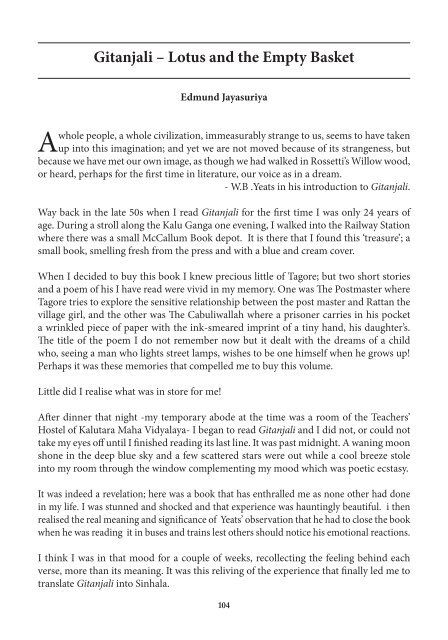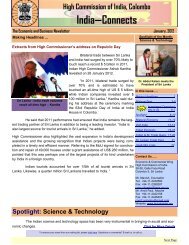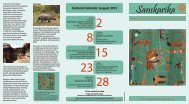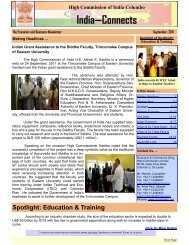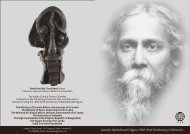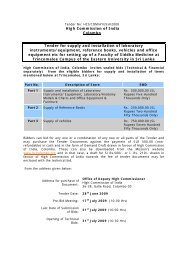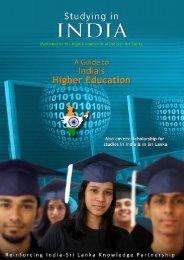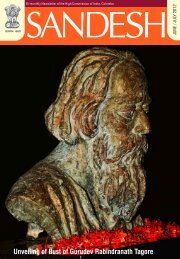Remembering Rabindranath Tagore Volume - High Commission of ...
Remembering Rabindranath Tagore Volume - High Commission of ...
Remembering Rabindranath Tagore Volume - High Commission of ...
Create successful ePaper yourself
Turn your PDF publications into a flip-book with our unique Google optimized e-Paper software.
Gitanjali – Lotus and the Empty Basket<br />
Edmund Jayasuriya<br />
whole people, a whole civilization, immeasurably strange to us, seems to have taken<br />
A up into this imagination; and yet we are not moved because <strong>of</strong> its strangeness, but<br />
because we have met our own image, as though we had walked in Rossetti’s Willow wood,<br />
or heard, perhaps for the first time in literature, our voice as in a dream.<br />
- W.B .Yeats in his introduction to Gitanjali.<br />
Way back in the late 50s when I read Gitanjali for the first time I was only 24 years <strong>of</strong><br />
age. During a stroll along the Kalu Ganga one evening, I walked into the Railway Station<br />
where there was a small McCallum Book depot. It is there that I found this ‘treasure’; a<br />
small book, smelling fresh from the press and with a blue and cream cover.<br />
When I decided to buy this book I knew precious little <strong>of</strong> <strong>Tagore</strong>; but two short stories<br />
and a poem <strong>of</strong> his I have read were vivid in my memory. One was The Postmaster where<br />
<strong>Tagore</strong> tries to explore the sensitive relationship between the post master and Rattan the<br />
village girl, and the other was The Cabuliwallah where a prisoner carries in his pocket<br />
a wrinkled piece <strong>of</strong> paper with the ink-smeared imprint <strong>of</strong> a tiny hand, his daughter’s.<br />
The title <strong>of</strong> the poem I do not remember now but it dealt with the dreams <strong>of</strong> a child<br />
who, seeing a man who lights street lamps, wishes to be one himself when he grows up!<br />
Perhaps it was these memories that compelled me to buy this volume.<br />
Little did I realise what was in store for me!<br />
After dinner that night -my temporary abode at the time was a room <strong>of</strong> the Teachers’<br />
Hostel <strong>of</strong> Kalutara Maha Vidyalaya- I began to read Gitanjali and I did not, or could not<br />
take my eyes <strong>of</strong>f until I finished reading its last line. It was past midnight. A waning moon<br />
shone in the deep blue sky and a few scattered stars were out while a cool breeze stole<br />
into my room through the window complementing my mood which was poetic ecstasy.<br />
It was indeed a revelation; here was a book that has enthralled me as none other had done<br />
in my life. I was stunned and shocked and that experience was hauntingly beautiful. i then<br />
realised the real meaning and significance <strong>of</strong> Yeats’ observation that he had to close the book<br />
when he was reading it in buses and trains lest others should notice his emotional reactions.<br />
I think I was in that mood for a couple <strong>of</strong> weeks, recollecting the feeling behind each<br />
verse, more than its meaning. It was this reliving <strong>of</strong> the experience that finally led me to<br />
translate Gitanjali into Sinhala.<br />
104


